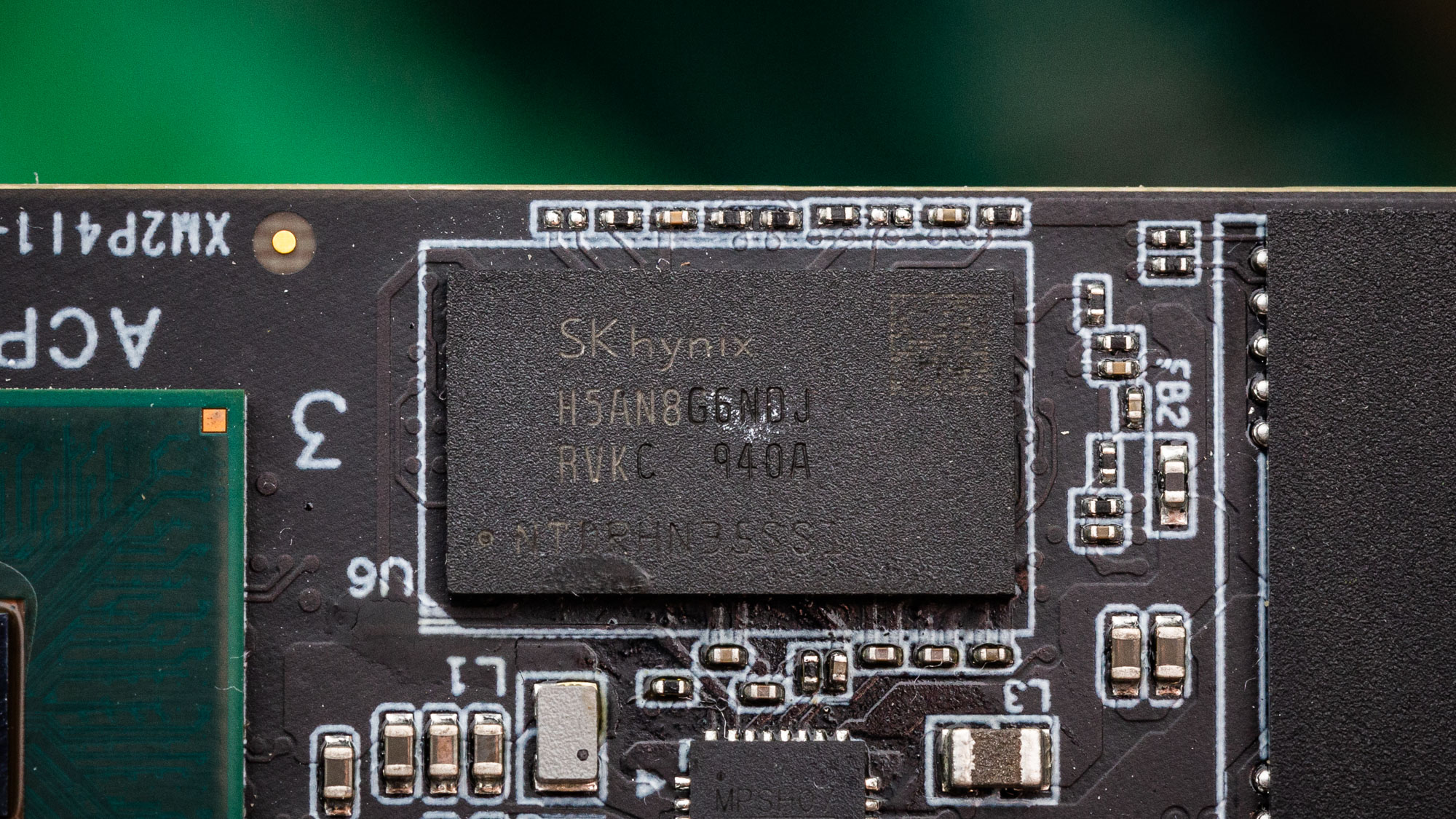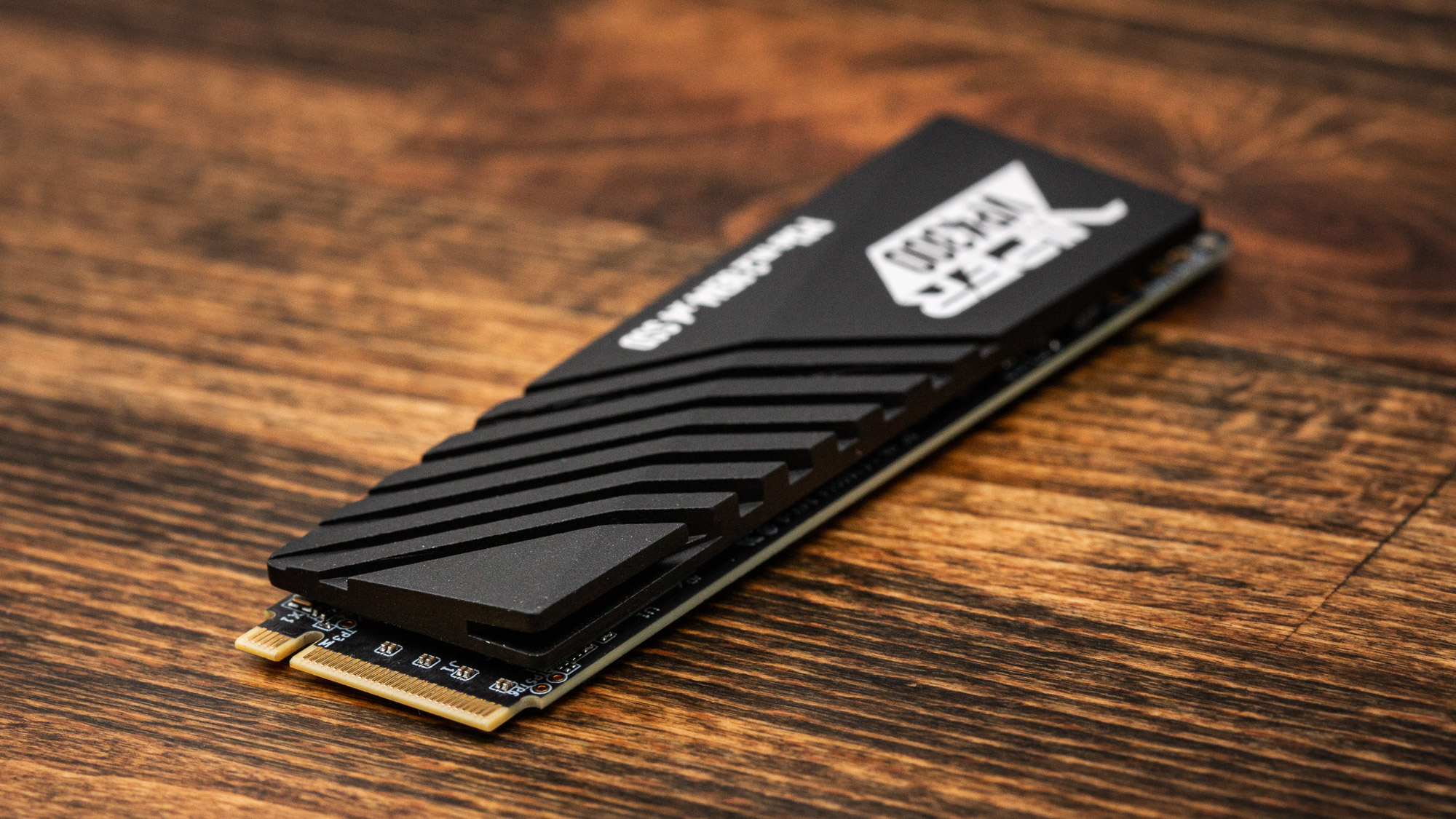Why you can trust Tom's Hardware
Patriot’s Viper VP4300 is a high-performance PCIe 4.0 NVMe SSD that comes with the killer looks to match its fast performance, and its performance results look amazing on paper — its rating for 7.4/6.8 GBps of sequential read/write throughput is the fastest we've seen yet, and the company specs the drives for up to 800,000 random read/write IOPS during heavy workloads.
Unfortunately, we weren't able to reach those numbers in our testing. Patriot rates the Viper VP4300 to sustain 800,000 random read/write IOPS, but our sample only achieved 371,000/601,000 random read/write IOPS under heavy load. It also wasn’t quite as responsive as competing drives under lighter loads, either.
The Viper VP4300 is very responsive during most daily tasks, but it's not the fastest NVMe SSD on the market. Compared to the best of the best, the InnoGrit powered VP4300 has a lot to offer but, like most new Gen4 NVMe SSDs controllers, there's still some performance optimization work to be done.
Sequential performance could be improved at smaller file sizes, and while the SSD comes with a large dynamic SLC cache and recovers a decently-sized portion of the static SLC cache, performance was inconsistent, especially when taxed with heavy write workloads that exceed the size of the cache. That's partially because the large dynamic cache recovers slowly.
The VP4300's five-year warranty matches the Samsung 980 Pro and WD Black SN850, but it also has a higher endurance rating than either of those drives and comes with some nice add-ons and features. The included heatsink and ultra-thin graphene heat spreaders not only look good, but are very effective at cooling the SSD. Like the Samsung 980 Pro, the VP4300 features AES 256 full disk encryption, which is useful for those that need the added security.
While it comes with everything you could want from a high-end, enthusiast-grade NVMe SSD, the VP4300's launch pricing of $255 for the 1TB capacity and $500 for the 2TB is a little high, even for an SSD of this caliber. The WD Black SN850, Samsung 980 Pro, Sabrent Rocket 4 Plus, and even the Adata XPG Gammix S70 offer a better price-per-GB ratio, retailing at roughly $100-150 cheaper for a 2TB drive. Patriot will have to price the Viper VP4300 a bit more aggressively to sway our recommendation away from one of these alternative picks.
Get Tom's Hardware's best news and in-depth reviews, straight to your inbox.

Sean is a Contributing Editor at Tom’s Hardware US, covering storage hardware.
-
escksu My complain is the killer price......500 for 2TB version is way too expensive. Thats 100 more expensive than brands like Sabrent and Adata and 50 more than WesternDigital black.Reply -
Drazen In all tests, eg Samsung 980 Pro is faster and cca 50 Eur cheaper. Similar for WD SN850.Reply
Why should I buy Viper?
Yeah, it has bigger SLC cache but final result is nothing special but too expensive. -
escksu ReplyDrazen said:In all tests, eg Samsung 980 Pro is faster and cca 50 Eur cheaper. Similar for WD SN850.
Why should I buy Viper?
Yeah, it has bigger SLC cache but final result is nothing special but too expensive.
The speed is only visible in sequential read/write benchmarks. You wont find your games/apps load any faster. -
ceomrman2 I agree with the reviewer and with other posters that it's launch price is oddly optimistic. Surely they looked at the price of their better-known competitors? The extra cost sinks this option for buyers looking to get an SSD this week. Nonetheless, prices change with the wind. If Patriot gets the message and hands out $100 coupons next month, voila, they've got a winner. I will say Tom's is pretty good about staying on top of those changes in their currently recommended lists, but anyone searching later when the review is a little older will probably only see the original conclusions.Reply -
macgeek Going by Western Digital's pricing, I'd say at least $50 of Patriot's price is from the heatsink. At least Western Digital lets you save $50 by going without the heatsink, which makes sense if you have a motherboard that comes with its own SSD heatsink setup, like the relatively inexpensive ($150) MSI B550 Gaming Plus.Reply

